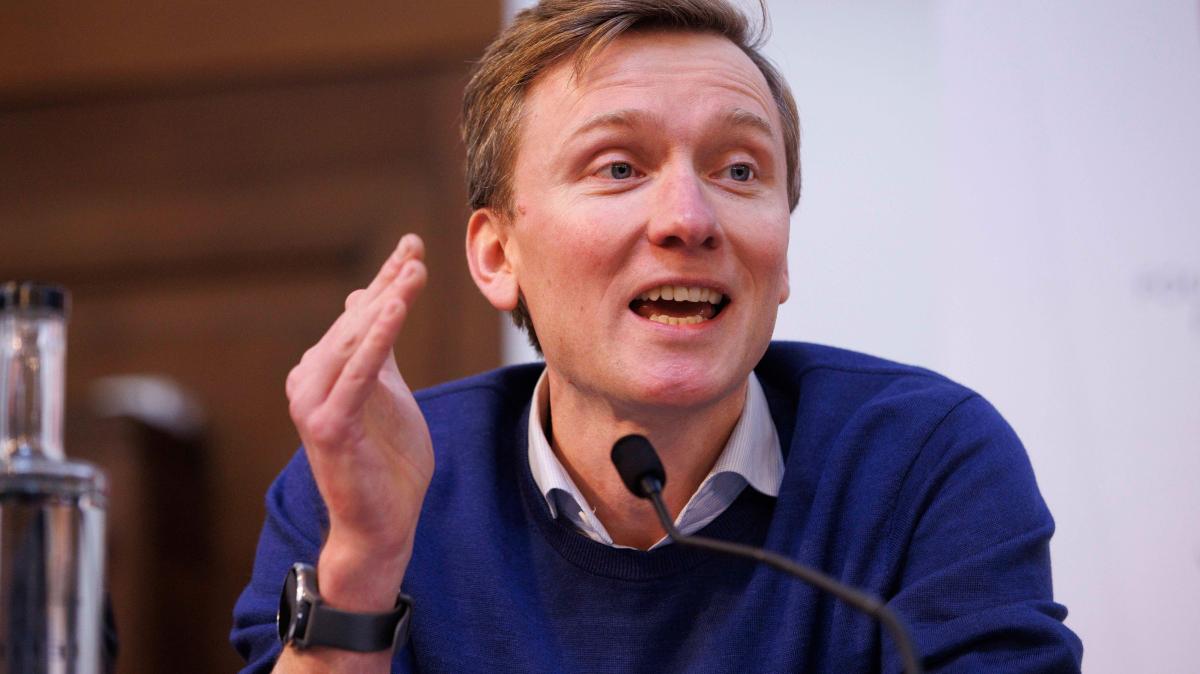The pensions minister has committed to keeping the triple lock, despite accusations that it will soon be unaffordable.
With a multibillion-pound fiscal black hole to fill, the government is under intense pressure to raise taxes or cut costs in the budget at the end of November. But Torsten Bell, who is also secretary to the Treasury, has insisted that they are not considering scrapping the triple lock guarantee that the state pension will rise every year by the highest of inflation, average wage growth or 2.5 per cent.
Bell told an event in London on Wednesday: “I always say that if you want to know what the government is doing, then you can read the manifesto, because it tells you, which is that the triple lock is staying for the course throughout this parliament.”
The full new state pension for those who reached state pension age after April 2016 rose to £230.25 a week in April, up 4.1 per cent on the 2024-25 financial year. It is likely to rise 5 per cent in April (£599) from £11,973 to £12,572 in line with wage growth. The state pension was expected to cost £114.1 billion in the last financial year, according to the government’s fiscal watchdog, the Office for Budget Responsibility (OBR), and is forecast to cost £149.3 billion in 2029-30.
• Europe’s waking up to the state pension nightmare — we should too
Bell, the Labour MP for Swansea West since the general election last year, landed his government jobs in January. Before entering parliament he was the chief executive of the Resolution Foundation, a left-leaning think tank, where he described the triple lock as “messy tool” for achieving a higher state pension. He argued for a closer link to average earnings, with more limited protection against spikes in inflation such as those in 2022 and 2023 when global oil prices soared.
On Wednesday Bell said: “We’re aiming to deliver adequate retirements for the vast majority of the population, and the state pension for the bottom two thirds is a very material part of their retirement income, it’s a bedrock.
“So a higher state pension relative to earnings is a very sensible thing to be aiming for, and the triple lock is delivering that and that’s why it’s in the manifesto and that’s exactly what we’re going to do.”
• Is the Isle of Man on the right track with the triple lock?
He said that those retiring in 2050 were on track for a retirement income 8 per cent lower than those who retired this year, because of lower income from private pensions. There has been a shift away from defined benefit or final-salary pensions, which paid a guaranteed income, usually inflation-linked. Most workers are now part of defined contribution schemes, where what you get in retirement is based on how much is paid in and how your investments perform.
There are growing calls to reform the triple lock amid concerns over how it will be funded. The OBR said it has cost “about three times more than initially expected” because of volatile inflation and lower earnings growth.
It estimates that increasing state pensions in line with the triple lock will mean that the state pension costs £15.5 billion more in the 2029-30 tax year than if it increased in line with earnings alone.
The OBR said the state pension was equivalent to 5 per cent of GDP in the 2024-25 financial year, up from 4.3 per cent in 2010-11. It estimates that state pension spending will be 7.7 per cent of GDP by the early 2070s, because of the ageing population. There are expected to be 2.7 working-age people per pensioner by the early 2070s, down from 3.4 today.
Sir Steve Webb, the pensions minister who introduced the triple lock and is now a partner at the consultancy Lane Clark and Peacock, said: “Given that the triple lock was regularly used as a shield for the government over the row over winter fuel payments, it would be a massive U-turn for it to be dropped just a few months later.
• Read more money advice and tips on investing from our experts
“The cost of the triple lock is already baked into government spending plans for this parliament, and abolition actually saves relatively little in the short term.”
The Institute for Fiscal Studies, an independent think tank, estimates that the state pension age will need to rise to 74 by 2068 to balance the books and fund the triple lock.
Webb said: “Getting rid of the triple lock would be more about saving money in decades to come, and given the government’s poll ratings, exchanging short-term unpopularity for long-term fiscal rectitude is unlikely to be an attractive option.”

